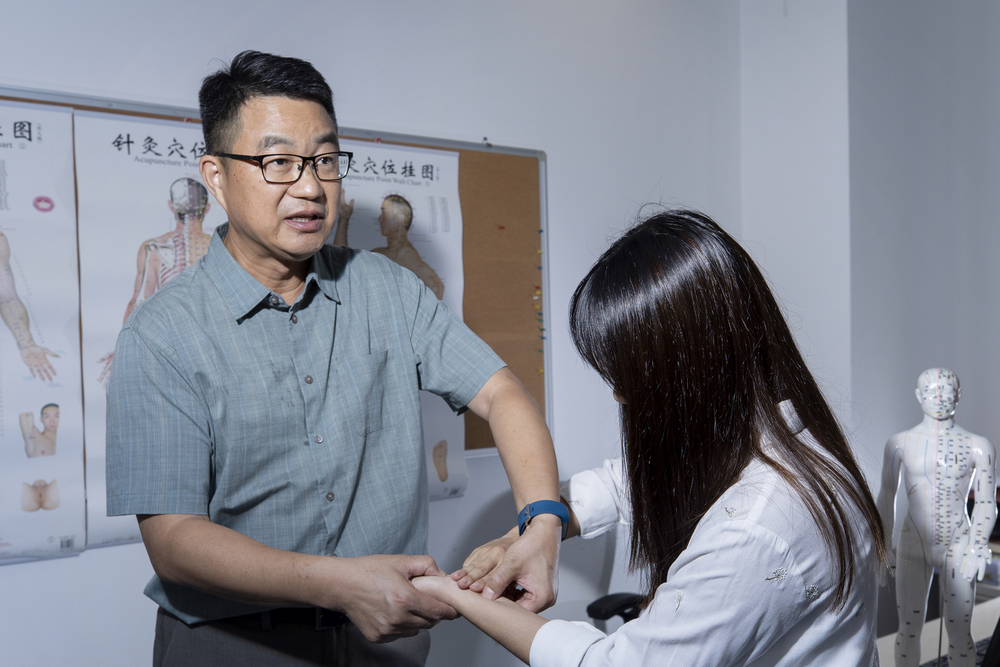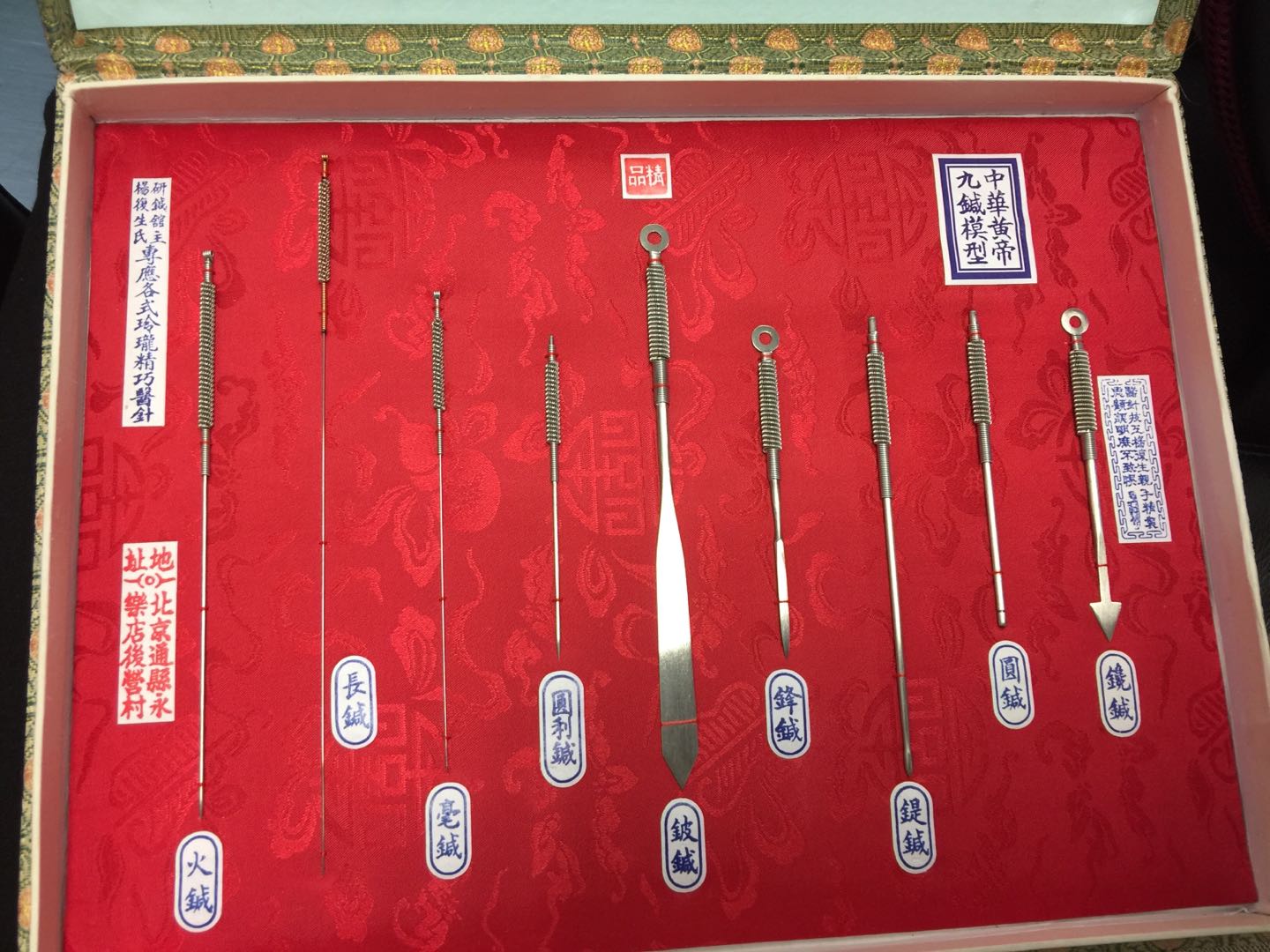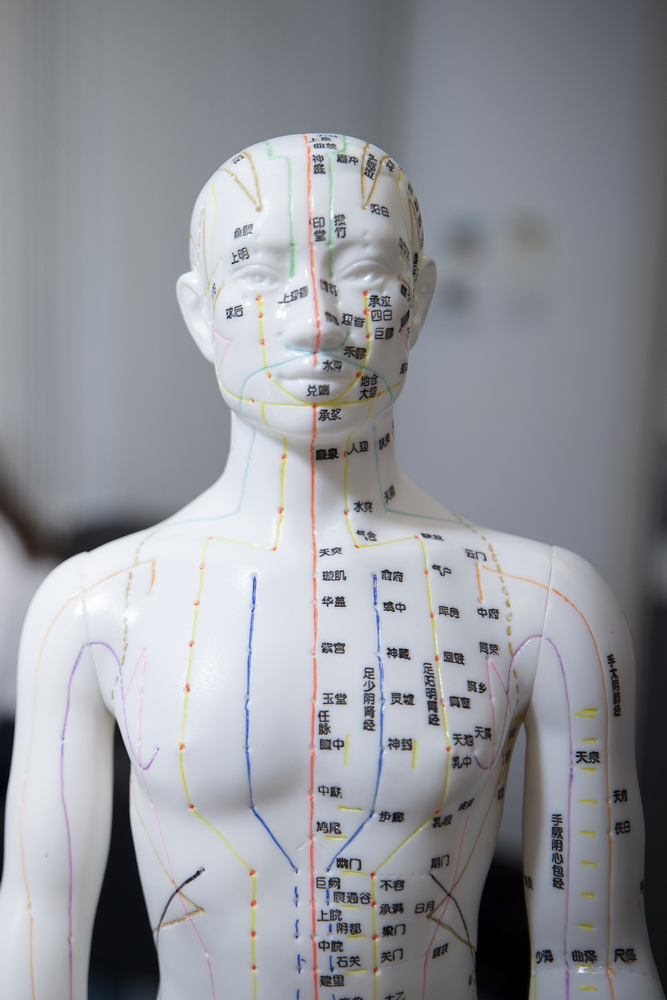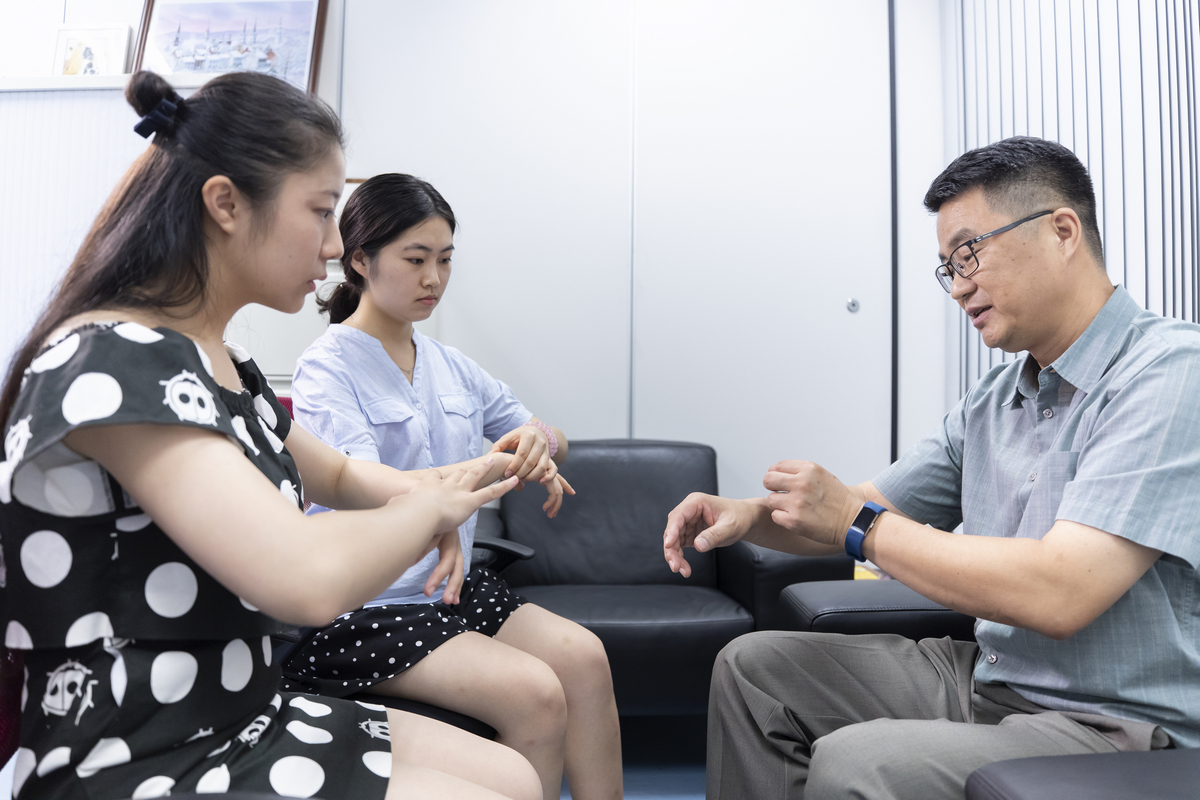The general education course in traditional Chinese medicine (TCM), which is taught by Prof Chen Xin, deputy director of the Institute of Chinese Medical Sciences (ICMS), and his ICMS colleagues, has been very popular with the students since it was launched in the 2017/2018 academic year, as the knowledge acquired from the course can be easily applied in everyday life.
Introducing Students to TCM
Prof Chen comes from a family which has practiced Chinese medicine for nine generations. With a PhD degree in Chinese medical sciences and another PhD degree in immunology, he was a licensed acupuncturist in the State of Maryland, United States. Before joining UM in 2014, he was a visiting fellow in the US National Cancer Institute and taught courses in Chinese medical sciences and acupuncture at the graduate school of the US National Institutes of Health for ten years. His research team is currently working on projects in three areas, namely immunopharmacology, immunobiology, and translational medicine.
Having worked and lived in the US for 16 years, Prof Chen is acutely aware of the relative lack of knowledge about TCM among students in Macao and mainland China. He says, ‘Acupuncture originated in China, but it is now more commonly practiced in the US, so I hope this GE course will help UM students understand the past, present, and future of TCM, as well as its modernisation and role in the modern medical healthcare system. I also hope students will apply the knowledge learned from this course in their daily life. For instance, after completing the course, they should know the advantages of treating disease with TCM and how to choose the correct medicines for themselves and their family members.’
Knowledge with Everyday Applications Is a Draw for Students
The students in Prof Chen’s class come from different faculties, with 60 per cent of them specialising in humanities or social sciences. Since teaching the profound theories of TCM to students from diverse backgrounds is quite challenging, Prof Chen uses a lot of videos and physical aids in class and livens up his lectures by telling stories about famous Chinese medicine doctors in history.
Prof Chen believes that research informs and enhances teaching and vice versa. ‘My research has been very beneficial to my teaching, and teaching this GE course to undergraduate students from different backgrounds also inspires my research,’ he says. ‘In teaching TCM, I will teach a little bit about immunology. TCM believes that exogenous pathogens get into our body through the mouth or the nose, which is consistent with modern medical knowledge. For instance, the influenza virus gets into the human body through the mucuso in the mouth, eyes, or nose.’ Students in his class are particularly interested in the health benefits of acupuncture. Whenever Prof Chen demonstrates how to treat minor ailments such as insomnia and anxiety by inserting needles into the different acupuncture points, students would watch him with rapt attention and try to find the correct locations on their bodies.
Under the guidance of Prof Chen and his colleagues, more than ten students from this GE course got their class presentations published in the 16th issue of the Journal of Chinese Medicine in Macao. Among them are Sunny Wang, a fourth-year student from the Faculty of Health Sciences; and Lily Hu, a third-year student of English studies from the Faculty of Arts and Humanities.
According to Wang, students were amazed when Prof Chen demonstrated how to locate the different acupuncture points with a scientific instrument. ‘It is significant to locate invisible acupuncture points through modern technology,’ she says. After attending the course for a semester, Wang gained a more complete and scientific understanding of TCM. ‘There is a lot of information floating around on the internet, but spreading misinformation about TCM on the internet can pose a health threat to those who believe it. So I hope to find a job that allows me to popularise knowledge about TCM lest the false information sullies its good name,’ she says.
Hu joined Prof Chen’s summer research team after completing the GE course, serving as a helper in the laboratory, where she experienced cross-disciplinary learning. She says Prof Chen is funny, humorous, and approachable in class, which is completely different from his serious demeanour in the laboratory. She recalls, ‘The part the students love the most about the course is when Prof Chen teaches us how to massage the acupuncture points. It would instantly liven up the class, because it means we could try on ourselves.’
When teaching acupuncture, Prof Chen first explains the different acupuncture points and their functions. He then demonstrates the techniques on his body, showing students how to find the correct locations. This is usually followed by an instructional video to enhance students’ understanding. He also demonstrates the needles for acupuncture and the moxa sticks for moxibustion, and invites the students to discuss which needles are appropriate for which acupuncture points. A sufferer of allergic rhinitis, Hu has learned from the course that massaging the Yingxiang acupuncture points on both sides of the nose can effectively improve nasal congestion. ‘The greatest benefit of attending this course is that you can apply the knowledge in daily life,’ she says.
Going Global
China’s strategy for developing the Guangdong-Hong Kong-Macao Greater Bay Area and the Belt and Road Initiative spell new opportunities for the development of Chinese medical sciences in Macao. In June 2017, Macao became one of the world’s six acupuncture training centres, injecting a fresh impetus in the field. During this summer holiday, Prof Chen was invited by China Pharmaceutical University (CPU) to teach an international open course in TCM and acupuncture in English for 88 students from CPU and other universities in Nanjing. ‘For TCM to go global, it is important to be able to communicate with academia and patients in English,’ he says. ‘Macao is a mix of Chinese and Portuguese cultures, with innate social, cultural, and linguistic advantages. These advantages create favourable conditions for developing Macao into a platform for sharing and developing knowledge about TCM, including acupuncture techniques, among Portuguese-speaking countries. Macao can very well serve as a window through which we promote TCM to the European Union and the rest of the world. ’
Prof Chen and his colleagues plan to make the course more diverse. Apart from traditional theories and knowledge of TCM, the course will also incorporate new topics, such as the future and the internationalisation of TCM, and the development of new TCM-based drugs and treatment.
Source: umagazine

Prof Chen Xin teaches students the health benefits of acupuncture. For instance

massaging the Neiguan acupuncture point can help relieve stress from studying.

Prof Chen Xin’s collection of medical needles used by Chinese medicine doctors in ancient China

Prof Chen Xin uses a model of the human body to help students memorise the locations of the acupuncture points
